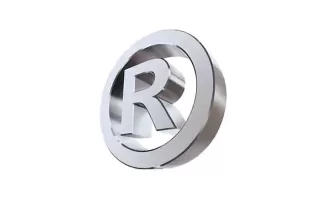Understanding U.S. Patent Terminal Disclaimers
Understanding Terminal Disclaimers in U.S. Patent Practice: A Practical Guide When prosecuting a U.S. patent application, few surprises are more common—and more confusing to inventors—than receiving an obviousness-type double [...]
California Consumer Privacy Act
In an era where personal data is increasingly valuable, the California Consumer Privacy Act (CCPA) stands as a landmark legislation to empower consumers and reshape how businesses handle personal information. Enacted in 2018 and effective January 1, 2020, the CCPA grants California residents unprecedented rights over their data. This comprehensive guide delves into the intricacies of the CCPA, its evolution, consumer rights, business obligations, enforcement mechanisms, and broader implications.
Service Mark Registration – Specimen Of Use
SPECIMEN FOR A MARK USED WITH SERVICES A service mark specimen must show the mark as actually used in the sale of the services, which includes use in the [...]
Statement Of Use Deadlines
THE DEADLINE TO FILE A STATEMENT OF USE FOR U.S. INTENT-TO-USE TRADEMARK REGISTRATION APPLICATIONS In an intent-to-use application to register a trademark, service mark, collective mark, or certification [...]
Founder Agreements
The Importance Of A Founder Agreement About Founders Agreements One of the first steps for individuals working together as co-owners of a contemplated new business is to enter into [...]
Trademark Opposition Proceedings
A trademark opposition is a type of litigation proceeding that happens in the United States Patent & Trademark Office ("USPTO") between a party who has applied [...]
Patent Protection Essentials Program
An Expert Law Tips Program PATENT PROTECTION ESSENTIALS Patent Protection Essentials For Inventors & Businesses We live in a world where inventions form much of the backbone of our modern [...]
Copyright Fair Use
The fair use doctrine of U.S. copyright law limits the exclusive rights of copyright owners. Learn about the four non-exclusive factors considered when determining whether use of a copyrighted work by another qualifies as a fair use under the law.
The Attorney-Client Privilege
The attorney-client privilege is a powerful legal tool that can help you get the most out the attorney-client relationship. Learn the essentials about this important privilege here.








